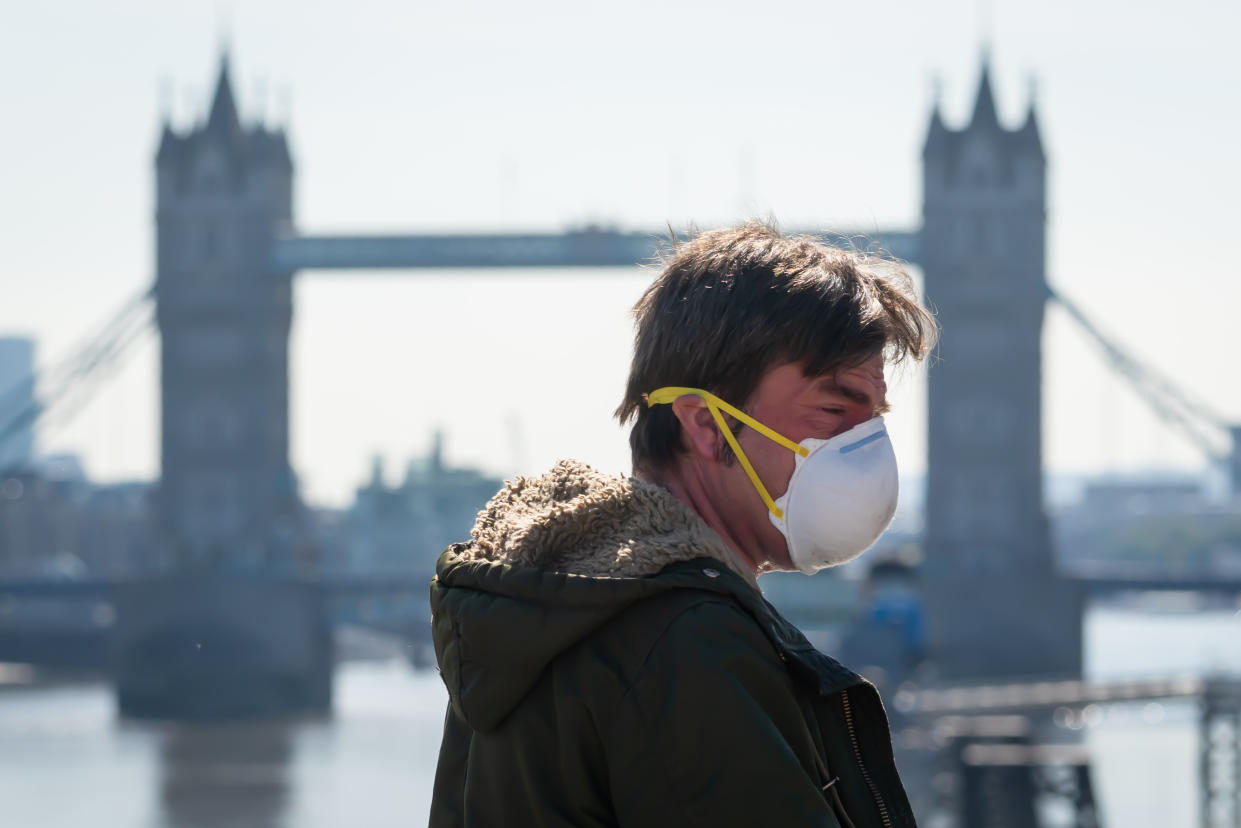Coronavirus: UK economy saw historic 20% crash in April lockdown

The UK economy shrank by 20.4% in April, the steepest contraction on record, as the country’s businesses reckoned with far-reaching coronavirus lockdown measures.
The month-on-month decline in gross domestic product (GDP) completely eclipses the previous record contraction of 5.8%, which was seen just a month earlier in March, according to the Office for National Statistics (ONS).
“April’s fall in GDP is the biggest the UK has ever seen, more than three times larger than last month and almost ten times larger than the steepest pre-COVID-19 fall. In April the economy was around 25% smaller than in February,” said Jonathan Athow of the ONS.
“Virtually all areas of the economy were hit, with pubs, education, health and car sales all giving the biggest contributions to this historic fall,” he said.
READ MORE: UK recession to be worse than France, Italy, Spain, and Germany, warns OECD
The services sector — which makes up around 80% of the UK’s economic output — fell by 19.0% in April. Industrial output plunged 20.3%.
Athow pointed to significant falls in the manufacturing and construction sectors, which fell by 24.3% and 40.1%, respectively, and also noted that trade with the rest of the world was badly affected by the pandemic.
While consensus estimates had predicted an 18.4% contraction, there was considerable disagreement among analysts about the potential scale of the downturn. The most downbeat forecast, from Investec’s Philip Shaw, predicted the economy would tumble by as much as 31.5% in April.
The contraction was more modest in March, since the UK-wide lockdown was not implemented until late in the month.
Some businesses began to reopen in May, so analysts expect April’s contraction to represent the worst of the impact. Compared with 2019, the economy shrank by 24.5% in the month.
In the three months to the end of April, the country’s economy contracted by what the ONS called an “unprecedented” 10.4%, with widespread falls across nearly all industries.
The construction industry was the worst affected major economic sector during the three months, with output declining by 18.2%.
But output from the education sub-sector fell 18.8% in the period, reflecting school closures in March and April. Food and beverage service activities fell by 38.8% as a result of the widespread closures of bars and restaurants.
“We've gotten used to really bad numbers, but this is breathtaking,” said Morten Lund, an economist at Nordea Markets, referring to the monthly data. Lund noted that the UK economy “is looking worse” in comparison with its G7 peers, such as the US, France, Germany, and Italy.
On Wednesday, the Organisation for Economic Co-operation and Development (OECD) warned that the UK economy could be among the worst affected by the economic impacts of the coronavirus pandemic.
READ MORE: UK government gives businesses £100bn helping hand
If there is no second wave of the virus, the OECD said that the UK economy will contract by 11.5% in 2020, the sharpest decline due to be experienced by any of the 37 members of the organisation.
But OECD chief economist Laurence Boone noted that it was difficult to accurately predict the precise impact, noting that the UK would experience a contraction similar to that of Spain, France, and Italy.
Even the Bank of England has been hesitant to issue clear-cut predictions. Though the bank last month suggested that the country was on the precipice of its worst recession in over 300 years, it decided not to issue its traditional forecasts.
“We don't know how much scarring there will be,” Bank of England governor Andrew Bailey said on Wednesday. “I think it is reasonable to say there will be some, but it is very hard to judge,” he said.


